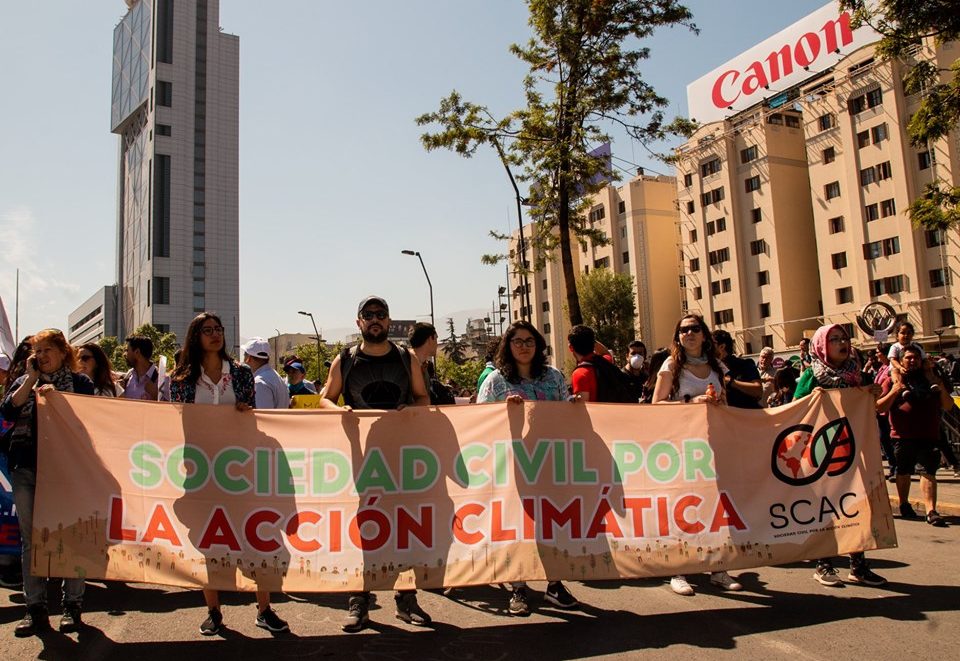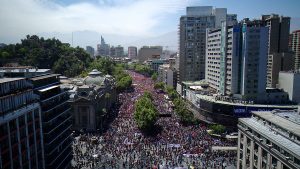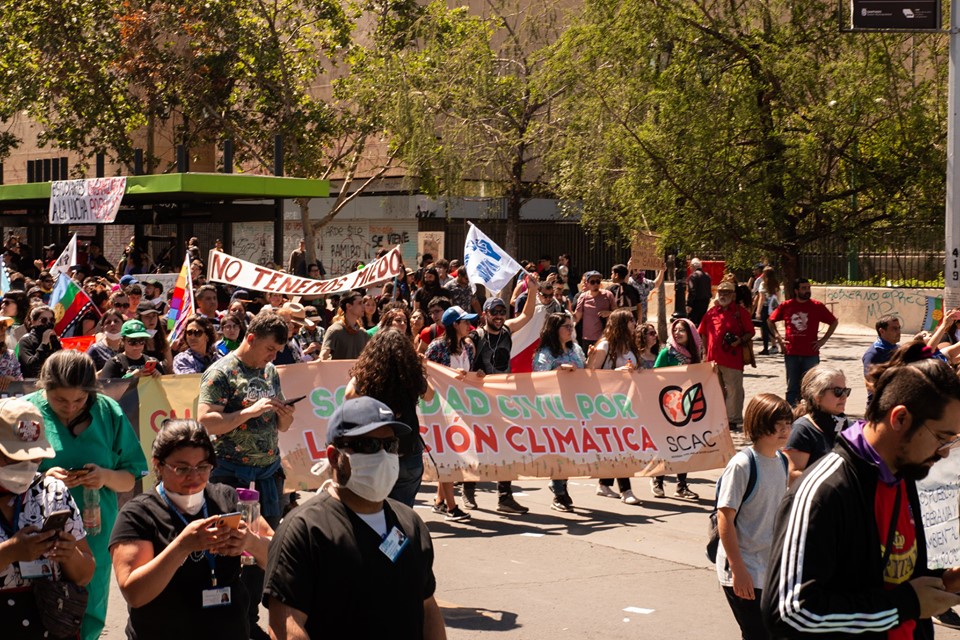
Voices from the South – October 2019
In this month’s “Voices from the South”, we share a statement from Sociedad Civil por la Acción Climática (Civil Society for Climate Action) that analyzes the political, social and environmental challenges facing Chile and Latin America.
Chile was supposed to host the 2019 United Nations Climate Change Conference, also known as COP25, in December in Santiago, but the brutal repression recently put in place by the Chilean government against peaceful popular protests have jeopardized the arrangement of the event, which was cancelled and moved to Madrid.
With this statement, SCAC condemns the decision of not hosting COP25 in Chile and calls the government to halt neo-liberal policies allowing the privatization and grabbing of common services and resources, which are the cause of both the environmental and the social crisis that sparked the popular uprising.

From the Civil Society for Climate Action we reject the decision of President Sebastián Piñera not to carry out COP 25 in Chile. This important summit on climate change was a great opportunity to relieve the social and environmental problems that affect many inhabitants and areas of the national territory, and to lift some of the leadership lost internationally by subtracting from relevant and necessary agreements such as the signing of the Escazú Agreement and the Migration Pact.
From our platform we always called for COP 25 to be carried out in a context of full democracy, with conditions for democratic dialogue and real citizen participation, that is why we are still committed to this instance and although the national authority maintains its erratic behavior, we will maintain the efforts we have put to raise the Climate Action Social Summit, a citizen instance that will act in parallel to COP 25, independent of the country in which it is carried out.
We are convinced, and we will continue working to make our government see that the social crisis is also an ecological crisis. Chile has been «growing» for many years at the expense of the most vulnerable people and the environment, forcing entire communities to bear the burden of the badly called development. The sacrifice zones, the communities that do not have water for human consumption or the production of their land, the salmon farms that affect the development of artisanal fisheries and pollute the oceans, the threats and murders of environmental defenders, are just some of the cases that deepen this crisis.

We are concerned that when the government cancels this international instance, it is renouncing to respond to the legitimate social demands that have been expressed in recent weeks, and that require structural level solutions, such as the creation of a constituent assembly to change the current constitution elaborated in dictatorship, by one in which citizens feel represented.
On the other hand, it is necessary to remember that, despite this unfortunate decision, Chile remains as the incoming presidency of the COP, so as country we continue to have the responsibility for this institution to meet its objectives. Increasing climate ambition and radically transforming our way of life, to keep the global temperature rise below 1.5 ° C, remains a priority. It is of utmost urgency to understand that the processes that are being managed through the COP, goes beyond the relationship with the local reality, but with the future of the whole humanity.
This unilateral decision by the president cannot delay global negotiations to protect life and ecosystems. We are already facing the consequences of the climate crisis, and those who endure them are those who suffer all the injustices of the current model, and therefore it is extremely urgent to take measures according to the size of the catastrophe.
We call on the government to adopt solutions that will lead us to overcome the moment we live as a country, we need structural reforms that at least end with the extractivist model, make water a human right ensuring its priority use for consumption and maintenance of ecosystems, put an end to the Sacrifice Zones, and the Escazu Agreement signed and ratified.

SCAC is a platform that brings together more than 130 organizations from the environmental world, territorial movements, professional associations, unions, political and academic organizations. This Instance has among its goals to raise awareness about the climate emergency, showing alternative solutions and alerting those proposals that are not an effective contribution to the improvement in the relationship between humanity and the environment.

